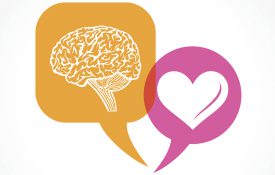
A longitudinal twin study suggests that victimization makes general and far-reaching contributions to mental disorders.

Serious illness, struggling to hold down a regular job, and poor social relationships are just some of the adverse outcomes in adulthood faced by those exposed to bullying in childhood.

Research in psychological science reveals the causes and consequences of bullying behavior in the office.

Researchers find that teenagers’ online lives closely resemble their offline experiences, but bullying is one area where the digital age may be introducing new risks.

Research suggests that there is likely a high degree of overlap between traditional forms of bullying and bullying online.

Data from healthy adolescents indicate that recent exposure to targeted rejection activates the molecular signaling pathways that regulate inflammation.

Researchers explore the causes and consequences of bullying that occurs through Facebook, text messages, and other digital platforms.

Long thought to result from fragile self-esteem, bullying may instead stem from grandiose, inflated, and narcissistic self-assessment, some psychological scientists argue.

While only a minority of toddlers are habitual bullies, this aggressive tendency appears to emerge right along with the motor skills that make it possible.

Findings from a longitudinal study suggest that childhood bullying may lead to long-lasting health consequences, impacting psychosocial risk factors for cardiovascular health well into adulthood.

People who score high on a measure of sadism seem to derive pleasure from behaviors that hurt others, and are even willing to expend extra effort to make someone else suffer, a study shows.

People tend to view a social media comment that calls out offensive behavior positively, but not when it's echoed by several other commenters.

Teaching teens that social and personality traits can change helps them cope with social challenges such as bullying, which can help mitigate stress and improve academic performance.

A study shows that training adults in compassion can result in greater altruistic behavior.

Supervisors often resort to bullying to compensate for their own feelings of incompetence. But studies show that bosses lower their aggression when they feel appreciated.

While low performers are typically the targets of bullying from co-workers, research suggests that people tagged as aces are also victimized in more discrete ways.

New evidence suggests that thinking about money may help buffer against the emotional toll of ostracism and social exclusion at work.

Powerful people who engaged in abusive behavior directed at employees paid the price later with lowered well-being.

Victims of workplace bullying often become stressed and anxious, making them easy targets for additional abuse.

Leaders who view themselves as less competent are much more likely to act out aggressively towards their subordinates.

A new study links workplace bullying to negative health outcomes for employees, including increases in long-term sick leave and prescriptions for antidepressants.

A study shows the role that “plausible deniability" may in discriminatory behavior against marginalized groups.

Conversations about the health disparities facing people with intellectual and developmental disabilities and disorders, and how to combat them, are long overdue.

In a guest column, APS Past President Susan T. Fiske calls on psychological scientists to tone down the ad hominem research critiques that are spreading across social media.
